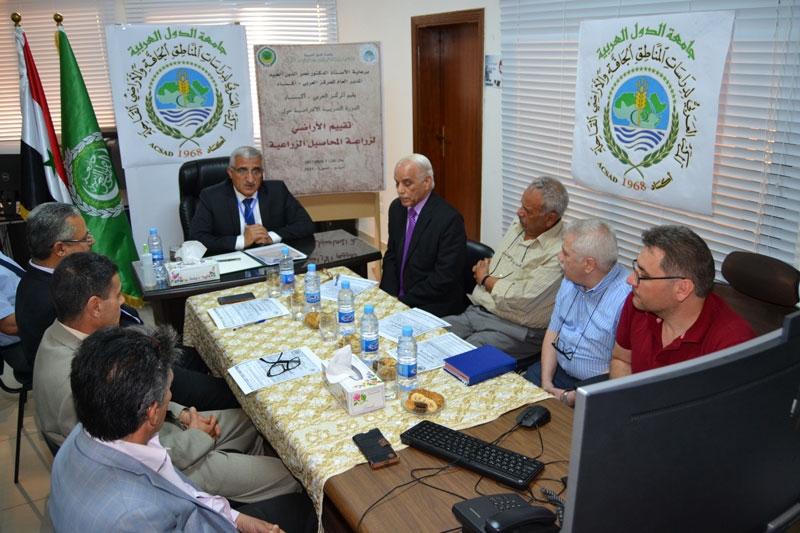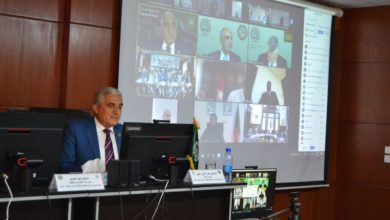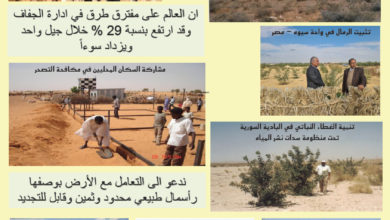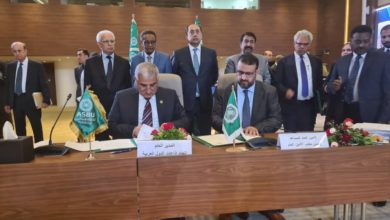ACSAD / an Arab Training Course / Land Evaluation to Cultivating Crops.
The Arab Center Organization for the Studies of Arid Zones and Drylands ACSAD held a training course on Land Evaluation to Cultivating Crops for several scientific cadres in the Arab countries to raise the scientific agricultural awareness in the field of sustainable management for land resources; determining the optimal use of lands’ units and its suitability.
The Director-General of the Arab Center Organization for the Studies of Arid Zones and Drylands ACSAD, Dr. Nasr Edin Obaid, confirmed in a speech during the course opening that the cooperation among the Arab Center ACSAD and the Arab agriculture managers, and relevant institutions in the Arab countries would yield great goodness in achieving sustainable Arab agriculture development and preserving land resources.
He also clarified that the scientific research and applied projects related to soil protection and improvement of its properties; were among the prominent Arab Center’s concerns to preserve it and the effective contribution to improving its specifications and increasing its productivity; supporting the aiming efforts to achieve food security in the Arab region. Therefore, ACSAD created in its organizational structure a department specialized in soil and lands studies; adopted an integrated approach dealing with physical, chemical, biological, and socioeconomic aspects of land uses; enhancement cooperation among the related institutions in the fields of environment protection and the preservation of land and water resources.
Dr. Obaid pointed that despite the importance of the efforts exerted to limit land degradation, the problem persists; especially, in the arid and semi-arid areas. Its negative environmental and socioeconomic results still exist, leading to the need to increase general awareness, work with an integrated approach to finding the appropriate solutions, and follow a suitable strategy to reduce land degradation processes and improve productivity.
He also noted of the course importance represented in increasing the scientific awareness and the importance of land evaluation systems applications, building the capacities to apply those systems, the nature of the outputs and results achieved, represented in preparing spatial distribution maps for the varieties of land suitability for cultivating demanded crops; determining the nature of soil characteristics specific for the required use, how to treat and improve them, and the actual contribution In increasing the area of agricultural land and thus increasing the quantities produced from food resources in the Arab region.
The course included many lectures delivered by ACSAD experts and researchers on the types of land suitability classification systems, “foundations and requirements,” scientific applications on land evaluation systems and final outputs, the relationship between soil and land, the concept of land evaluation, basic requirements and outputs.
Twenty-four trainees from Syria, Algeria, Iraq, Sudan, Yemen, Egypt, Oman, and Tunisia participated in the course and the FAO representative in Cairo, which would last for three days.




